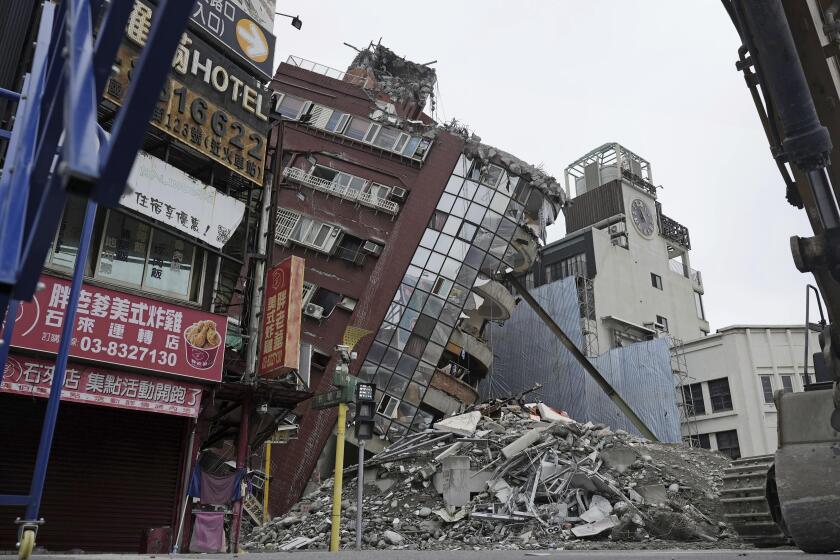Objections to Gas Shut-Off Valves Are Inconsequential : Quake-activated, low-cost gadget enhances public safety
Life in earthquake country requires a careful, constant balancing act between risks and costs. That’s why opposition to a Los Angeles City Council proposal requiring home buyers to install inexpensive gas shut-off valves that can prevent fires after earthquakes is puzzling. It’s a clear case of reducing risk at a modest cost.
Even so, some real estate agents and the gas company oppose efforts to make mandatory the special valves that seal off gas pipes during heavy shaking. Already, the city requires the valves in commercial buildings and in new homes. The proposal would also require the valves--which cost about $350--in apartment and condominium buildings that use a single gas line.
Under the proposal by Councilman Hal Bernson, home buyers would have six months to install the valves. Owners of multiunit buildings would have a year. Some real estate agents oppose the idea, in part because it would add yet another cost to buying a home. However, it’s unreasonable to assume that a buyer who has just made the biggest investment of a lifetime would be reluctant to protect that investment with a $350 gadget.
The Southern California Gas Co. traditionally has made a more convincing argument against mandatory valves. The gas company claims the valves can cause more harm than they prevent--particularly in a mild quake that causes just enough shaking to trigger the valve, but not enough to cause significant damage. In such a scenario, wide swaths of the city might be without gas for days or weeks as gas company employees restored service.
For instance, the gas company figured that only about 12% of the nearly 123,000 customers who turned off their gas after the Northridge earthquake really needed to. The gas company also claimed that if shut-off valves had been required throughout its service area at the time of the 1987 Whittier Narrows quake, 3 million customers would have lost service, which would have taken two to three months to restore.
The inevitable conclusion to such arguments is that the elderly, the infirm and the very young would suffer. The argument assumes that the gas could not be turned back on after a mild jolt except by a gas company technician. But valves are available today that allow residents to reset the flow of gas with the flip of a lever. Another argument against mandatory shut-off valves questions how many fires they actually prevent. It’s true that of the 51 gas-related structure fires after the Northridge earthquake, only about half might have been prevented by shut-off valves. The rest were caused by movement of unstrapped water heaters rupturing connections. However, a Stanford University study suggests that a strong earthquake during high winds could have disastrous results, with fire losses alone reaching as high as $70 billion.
The issue is not solely the protection of individual property. During a crisis, when emergency crews are stretched thin, a single house fire can easily threaten an entire neighborhood.
The valves do not eliminate the risk of fire. But when they are part of a package of preventive measures--such as strapping down water heaters--the valves can reduce the likelihood of catastrophic damage.
The City Council could have approved the proposal Friday, but instead sent it back to committee for further study. The measure should be adopted when it returns to the full council.
More to Read
Start your day right
Sign up for Essential California for news, features and recommendations from the L.A. Times and beyond in your inbox six days a week.
You may occasionally receive promotional content from the Los Angeles Times.





